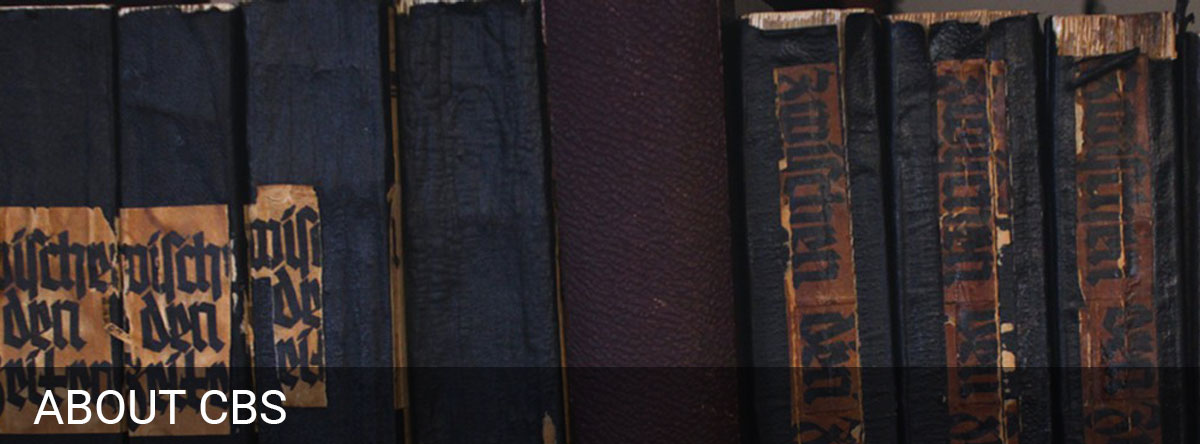The Center for Barth Studies is overseen by an eight member advisory committee comprised largely of Princeton Theological Seminary faculty members. The advisory board meets a minimum of two times per academic semester and relays announcements and updates about current scholarly efforts associated with the center to the public. In addition to overseeing the activities and objectives of the center, members of the advisory board are tasked with chairing the annual Karl Barth conference on a rotating basis and co-sponsoring a number of international initiatives in the field of Barth studies.
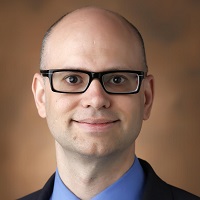
Clifford B. Anderson
Consulting Member
Clifford B. Anderson is an Associate University Librarian for Research and Learning and Professor of Religious Studies at Vanderbilt University in Nashville, TN. He holds a M.Div. from Harvard Divinity School and a Ph.D. and Th.M. in Theology from Princeton Theological Seminary. He also earned a M.S. in L.I.S. from the Pratt Institute. Anderson is the co-author of two edited volumes (both with Bruce L. McCormack) on Karl Barth: Karl Barth and American Evangelicalism (Eerdmans, 2011) and Karl Barth and the Making of Evangelical Theology (Eerdmans, 2015). He is also the translator (with Dagmare Houniet) of Tjitze Kuiper’s Abraham Kuyper: An Annotated Bibliography, 1857–2010 (Brill, 2011).
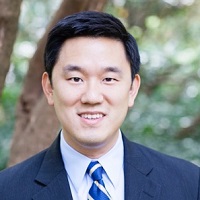
David Chao
Dr. David C. Chao is director of the Center for Asian American Christianity at Princeton Theological Seminary. He teaches courses on Asian American theology, organizes academic programming in Asian American theology and ministry, and mentors Asian and Asian American students. His research and writing focus on Asian American theology, the uses of Christian doctrine for liberation, the convergence and divergence of Protestant and Catholic dogmatics, and the theology of Karl Barth. His first book, titled Concursus and Concept Use in Karl Barth’s Doctrine of Providence, is under contract with Routledge. He is grant co-author and project editor for the $300,000 translation grant awarded by the National Endowment for the Humanities to the Karl Barth Translator’s Seminar. He is also developing a multi-volume project on Asian American theology. Chao is a graduate of Yale University (BA), Regent College (MDiv), and Princeton Theological Seminary (ThM, PhD). He is a member of the American Academy of Religion and the Association for Asian American Studies. Chao has a wide range of pastoral experience with Chinese American, Korean American, and Pan-Asian churches and ministries and is an active member of the Presbyterian Church (USA).
Steve Crocco
Consulting Member
Steve is the Library Director at Yale Divinity School. His involvement with the Center for Barth Studies at Princeton Seminary predates its founding. Active in the Karl Barth Society of North America (Midwest Chapter) while teaching Christian Ethics at Elmhurst College, Steve learned of plans by Markus Barth and others to form a Karl Barth research center in North America. He used his position as Library Director at Pittsburgh Theological Seminary to visit other research centers and develop the requirements for a center for Barth studies. In 1996, Steve was appointed to the Executive Committee of the KBSNA to identify a suitable home. In 1997, Princeton Seminary’s proposal to host the Barth center was affirmed by the KBSNA Executive Committee and Steve became the James Lenox Librarian at Princeton, a position he held until 2012. Steve hired the Center’s first Director, George Hunsinger, and was actively involved in building bridges between Princeton and the Barth Archive in Basel and Barth’s family, fund raising, and giving shape to the institutional requirements of the Center. Steve’s scholarly interest in Karl Barth lies in the area of Barth’s influence on North American theologians such as Joseph Haroutunian and H. Richard Niebuhr.
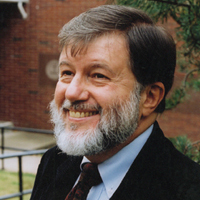
George Hunsinger
George Hunsinger is Princeton Theological Seminary’s Hazel Thompson McCord Professor of Systematic Theology. He earned his B.D. from Harvard University Divinity School and his M.A., M.Phil., and Ph.D. from Yale University. He served as director of the Seminary’s Center for Barth Studies from 1997 to 2001. He has broad interests in the history and theology of the Reformed tradition and in “generous orthodoxy” as a way beyond the modern liberal/conservative impasse in theology and church. An ordained Presbyterian minister, he was a major contributor to the new Presbyterian catechism. He teaches courses on the doctrine of the Holy Spirit in the Reformed tradition, the theology of the Lord’s Supper, the theology of John Calvin, and classical and recent Reformed theology. He is the founder of the National Religious Campaign Against Torture and a delegate to the official Reformed/Roman Catholic International Dialogue (2011-2017). His most recent scholarly contributions include The Eucharist and Ecumenism: Let Us Keep the Feast (Cambridge, 2008), Conversational Theology: Essays on Ecumenical, Postliberal, and Political Themes with Special Reference to Karl Barth (Bloomsbury T&T Clark, 2015), and Reading Barth with Charity: A Hermeneutical Proposal (Baker Academic, 2015).
Paul Dafydd Jones
Consulting Member
Paul Dafydd Jones is Associate Professor in the Department of Religious Studies at the University of Virginia and co-director, with Charles Mathewes, of The Luce Project on Religion and its Publics. He is author of The Humanity of Christ: Christology in Karl Barth’s Church Dogmatics (T&T Clark) and over two dozen articles, chapters, and essays. He is completing two major projects at present: The Oxford Handbook of Karl Barth (Oxford University Press, forthcoming in 2018), coedited with Paul Nimmo (University of Aberdeen), and a constructive work entitled Patience: A Theological Exploration.
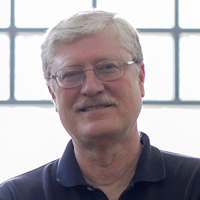 Bruce L. McCormack
Bruce L. McCormack
Bruce Lindley McCormack was Princeton Seminary’s Charles Hodge Professor of Systematic Theology until June 2022. He earned his PhD from Princeton Theological Seminary in 1989. He also earned an MDiv from Nazarene Theological Seminary and an honorary doctorate of theology from the Friedrich Schiller Universitat in Jena, Germany. A Presbyterian, McCormack is interested in the history of modern theology, from Schleiermacher and Hegel through Karl Barth. His courses cover Schleiermacher’s Glaubenslehre and the doctrine of atonement in Christian tradition. He is a member of the General Assembly committee commissioned to write a new catechism for the Presbyterian Church (USA) and has been a member of the panel on doctrine for the Church of Scotland. A member of the Karl Barth-Stiftung in Basel, Switerzland, he is North American editor of the Zeitschrift fuer Dialektische Theologie, published in Holland.
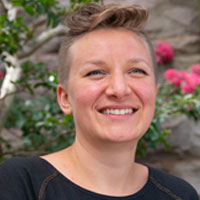 Hanna Reichel
Hanna Reichel
Chair
Dr. Reichel is Associate Professor of Reformed Theology at Princeton Theological Seminary. Also holding a B.Sc. in economics from Fernuniversität Hagen, they earned their Doc. theol. and MDiv from Ruprecht-Karls-Universität Heidelberg. Apart from a monograph titled, Theologie als Bekenntnis. Karl Barths kontextuelle Lektüre des Heidelberger Catechisms (FSÖTh, Göttingen: Vandenhoeck & Ruprecht, 2015), they have published articles on Barth’s theology of scripture, missiology, theological method, and Christology. Reichel’s teaching ranges across doctrinal loci (doctrine of God, Christology, eschatology) and from postcolonial and feminist epistemologies to political theology. Their research interests include theological method, epistemic justice, political theology, digital theology, and queer theology.
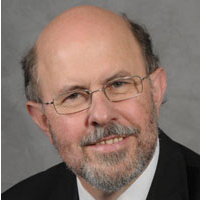
Dirkie J. Smit
Dr. Smit holds an MA (Philosophy, Stellenbosch), DTh (Stellenbosch), and PhD (h.c.) (Umeå, Sweden). His appointments include Honorary Professor of the Humboldt University, Berlin (Germany), Extraordinary Professor of Stellenbosch University (South Africa), Fellow of the Institute for Advanced Study, Berlin (Wissenschaftskolleg zu Berlin), and Member of the Academy of Science of South Africa (ASSAf). Smit comes to Princeton Seminary from Stellenbosch University in South Africa, where he served as Professor of Systematic Theology. Before his appointment to Stellenbosch, Smit served on the faculty at the University of the Western Cape. He has also served as a pastor.
Over the past three decades, Smit has emerged as one of South Africa’s most significant theologians. He has written extensively, in both English and Afrikaans, on the legacy of the Reformed tradition and its relevance to contemporary theological, social, and political questions. He has been a particularly prominent and influential voice in the church’s repudiation of apartheid. Smit was one of the primary authors of the Belhar Confession. Written in 1982 and adopted by the Dutch Reformed Mission Church in 1986, the Belhar Confession boldly declared the sinfulness of apartheid and was a call for justice, reconciliation and unity among all people. It has recently been adopted as part of the PC(USA) Book of Confessions. His teaching, supervision, research and popular writing all draw on experience in ecumenical theology and the church’s public witness in South Africa.

